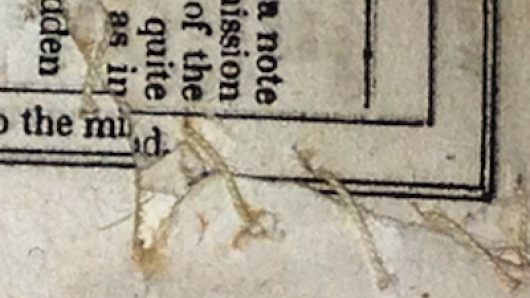Book Sleuthing: The Nineteenth Century

Associated Schools



Examine books for clues to the lives of the people who have read them
Gain historical perspective on today’s shift from print to digital media by tracing the 19th-century origins of modern mass-produced books
Compare your own reading habits to those of past readers. What conclusions would future historians draw if they could look at your bookshelves?
Do you love printed paper and wonder how much longer it will survive in the age of ebooks? Are you curious about how the mass-produced modern book emerged in the first place? Come behind the scenes in Harvard’s libraries to explore the look, feel and even smell of nineteenth-century British and American books in this fifth module of The Book: Histories Across Time and Space.
In 19th-century Britain and America, schooling expanded, paper cheapened, and new technologies allowed print to reach wider audiences than ever before. After the rare and beautiful manuscripts and books showcased by earlier modules, the mass-produced, disposable objects that survive from the nineteenth century bear witness to the rise of the reading public.
This module investigates what scholars know about nineteenth-century reading, as well as how they know it.
[video youtube_id="LwHbfJAYqJw"]
This module’s six sections guide you through underlined, inscribed, defaced and repaired books in Harvard’s collections.
Join us, and discover how people in the first information age read, underlined, and repaired the pages that they treasured.
HarvardX pursues the science of learning. By registering as an online learner in an HX course, you will also participate in research about learning. Read our research statement to learn more.
1. Name That Book
Find out what you can learn about a book when you’re blindfolded.
2. Handheld Books and Mobile Readers
What books did one soldier carry to Civil War battlefields in his pocket? (Hint: it’s not what you think.)
3. The Pen and the Needle
Did 19th-century girls have to choose between sewing and reading? The holes pricked in one book suggest they did both at once.
4. Leaving your Mark
Luckily for future historians, these children didn’t listen when people told them not to write in their books.
5. Detective Work
Try out some tools that build on what you’ve learned about books at Harvard to discover the stories hidden in your local library.
6. Over to You
Your chance to share what you have found in the books around you.